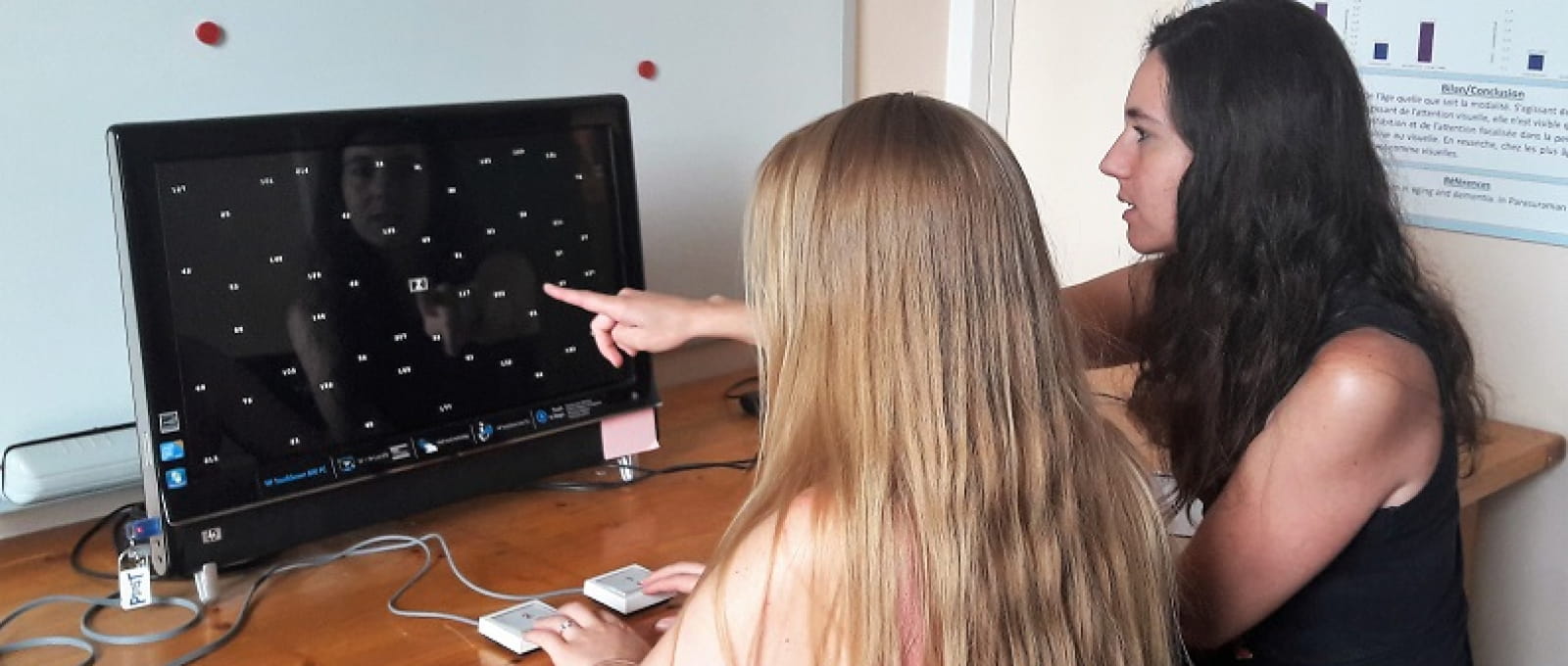
Master internships
In the Master's program, the emphasis is placed on practical laboratory internships in order to best prepare students for research.
First and foremost, the master’s degree prepares students to pursue a PhD and then apply for management positions in public or private research. This is why the emphasis is placed on practical laboratory internships.
In the two “classic” specialties, namely Molecular, Cellular and Integrated Neuroscience (NMCI) and Integrated, Cognitive and Behavioural Neuroscience (NICC), Master’s students now carry out two laboratory internships in different teams of laboratories* affiliated to the Master’s program for a total of 6 months in the laboratory over the 2 years of the Master’s program. After presentation of the project and approval by the management team, the internship may also take place in another structure (national or international), notably in one of the companies linked to neuroscience in the Marseille region.
Finally, students in the EMN-Online program also do laboratory internships. For more information, visit the EMN-Online site.
Please note that in order for a student to be able to apply to the competition for doctoral contracts at the Doctoral School of Life and Health Sciences, his/her future thesis supervisor must have a Habilitation to Direct Research (HDR) and be attached to neuroscience at the Doctoral School level.

During the first year (M1)
The internship lasts 4 weeks (between June 3-28th in 2024).
At the end of the internship, the student summarizes the objective, the methodological approach and the results obtained with a poster (poster, A0 format).

During the second year (M2)
M2 students choose to do one internship (5-6 months, depending on how the academic year is formatted) or two internships (2-3 months each), between January and June. In 2022, the internships will be between 8 January* and the end of June 2023.
*22 January for students who will need to validate animal care training
Between their M1 and M2 internships, students are encouraged to change labs in order to discover the widest range of topics. However, a student may return for their M2 internship to the laboratory where they completed their M1 internship.
At the end of the internship, the student presents his/her work in the form of a report and prepares an oral presentation (modalities to come).
Where to do your internship?
You can do your internship in a public laboratory, such as those attached to the University of Aix-Marseille, or in a private laboratory.
Your internship is the occasion to acquire training in research and thorough research to learn, among other things, how to work in a team, develop experimental protocols, manage projects… Depending on your professional project, you can choose to do your internship in a public structure or a private company.

Do your internship in one of our 75 teams
Thanks to the 9 NeuroMarseille laboratories, you can discover an exceptionally broad range of multi-scale approaches, from the molecular and cellular levels to behavioural sciences and cognitive psychology, on a wide range of experimental models. To find your dream team visit the following web page.
Discover our 9 research laboratories
Do your internship in a private company
NeuroSchool is developing a network of private partners to initiate meetings between students and entrepreneurs, and to promote R&D internships. Find out more on the web page below.
Discover our private partners
Neurojobs centre
In this page, you will find internship (and job) offers posted by our partners.
NeurojobsFrequently asked questions
Do you have any questions about internships? The answers can be found here!
The following document outlines the most frequently asked questions, so please consult it before contacting us.
- Gratuities (Gratification):
In France, when the duration of the internship is more than two months, it is obligatorily paid (with rare exceptions). Estimate the amount with this online calculator. - Definition of “Laboratory”: In France, a laboratory may designate a structure of varying size, sometimes corresponding to an entire institute. The laboratory is subdivided into teams that often include several statutory researchers or teacher-researchers, non-statutory researchers (post-docs), technical staff, doctoral students and trainee students.
You didn't find the answer to your question? Please contact us!





